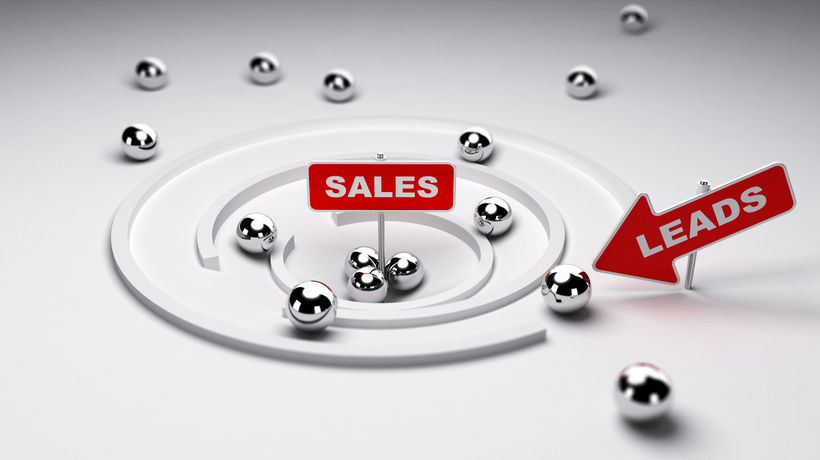Digital Marketing Funnel: The Definitive Guide
For any business, a high organic footfall is a key to success. A dedicated digital marketing funnel can help you achieve that. It helps you to identify the ways in which you can attract customers to visit your website. It also bridges the gap between the needs of customers and the marketing efforts of the business. Let us learn more about the concept.
Basic Concept Of A Digital Marketing Funnel
A digital marketing funnel spans over a customer's journey. It begins at “awareness,” or when the customer first gets to know about your company. The last stage is “purchase,” when the customer chooses your products over those of your competitor. This funnel helps you understand the right marketing strategy for each of these stages to get the maximum amount of customers.
Different Stages Of A Digital Marketing Funnel
In general, there are 4 paths or stages in a digital marketing funnel:
1. Awareness
As the first stage of a customer’s journey, this is when they seek a solution for a problem. They might not know about your brand or the products you provide. Hence, you must communicate how your business can cater to their needs.
2. Consideration
By now, the customer has an idea about your brand and product. At this stage, they proceed to compare your offerings against those of your competitors. This comparison of benefits and features helps a customer understand which product they would like to buy.
3. Purchase
At this stage, the customer has reached a conclusion after thorough research. Content like case studies, testimonials, and past experiences of customers help fortify the purchase decision of the customer.
4. Post-Purchase
It is wrong to consider that your communication with a customer is over once they have bought your product. Your existing customers provide you with more business and also help with word-of-mouth publicity for your brand.
4 Segments Of A Digital Marketing Funnel Framework
As any digital marketing course would teach you, a digital marketing model or framework has 4 crucial segments, namely:
- To See (The “Awareness” Stage)
- To Think (The “Consideration” Stage)
- To-Do (The “Purchase” Stage)
- To Care (The “Post-Purchase” Stage)
“See” Stage Strategies
Here, your aim is to make the customer realize that your brand exists and that your product might be the right fit for their needs. Awareness can be generated via the following:
- Display ads on Google
- Social media platforms like Instagram, Facebook, YouTube, and Pinterest
- SEO (search engine optimization)
- Webinars
- Content marketing
“Think” Stage Strategies
Research plays a big role at this stage of the funnel. Your product is compared with the offerings of your competitors. A customer will only choose the product that gives them the best deal with regards to benefits, features, price, et cetera.
So, it is your responsibility to convince them that your product is the best suited for them. A few tools that can be adopted here are:
- Make personalized content for your customers
- Showcase success stories of past customers
- Use testimonials as advertisements
- Hand out your product via free samples or trials
- Establish authority by promoting white papers
- Publish and promote your unique FAQs
- Form customized presentations to cater to customer needs
“Do” Stage Strategies
This is where you need to give a final nudge to the customer to help them choose your brand. Some effective strategies to negate last-minute mind changes are as follows:
- Display testimonials and reviews on your business website
- Actively reach out and solve customer queries on a one-to-one basis
- Use emails to get promotional offers across to would-be customers
- Ensure a quality guarantee via mechanisms like money-back policies
“Care” Stage Strategies
Loyal customers are the backbone of any business. The following strategies can help enhance customer satisfaction so that they choose your products again:
- Ask for feedback from customers via call or emails
- Arrange for personalized webinars to maximize product utility
- Provide additional resources across emails for efficient use of products
- Provide around-the-clock customer support
- Offer exclusive discounts and offers
What Content Should You Include In Each Funnel Segment?
Content marketing has emerged as an effective tool to promote your business. It is the cornerstone of any efficient SEO practice.
Awareness stage content:
- Updates on social media
- Blog posts
- Informative articles
- Audio-visual infographics
- How-to listicles
Consideration stage content:
- Webinars
- Case studies
- Toolkits and templates
- Resource list
- White papers
- eBooks
Purchase stage content:
- Past experiences of satisfied customers
- Detailed specifications
- Comparisons with competitor products
- Promotional codes and offers
- Demos
Post-Purchase stage content:
- How-to-use product guides
- Webinars
- Newsletters
Metrics To Judge An Efficient Digital Marketing Funnel
You must evaluate the pros and cons of a funnel to understand if there is any need for modifications. Some metrics that can help you understand the effectiveness of a digital marketing funnel are as follows:
- Rate of conversion
This indicates how many prospects in the funnel emerge as customers. A before-after study can help to judge this. - Source of exit and entry
The exit and entry stage of the funnel helps in identifying successful marketing strategies. - Time spent in each stage
The longer a customer stays at a stage, the more difficult it is to convert them. You can identify the problem stage and improve on the content there. - Rate of engagement in content
This evaluates the efficacy of the content you are using with the help of page depth, bounce rate, et cetera.
Summary
Thus, digital marketing funnels help you identify and use the best strategies for each stage of a customer’s journey and helps your business succeed.
